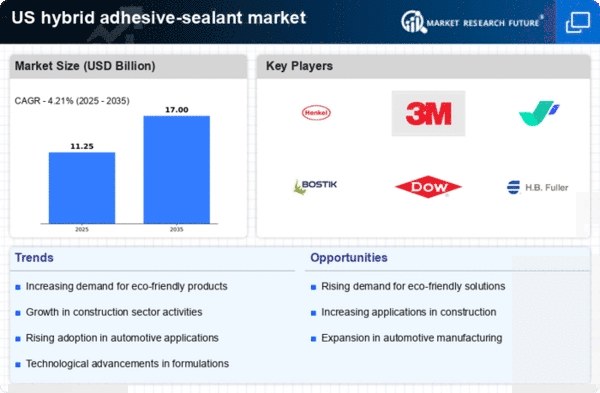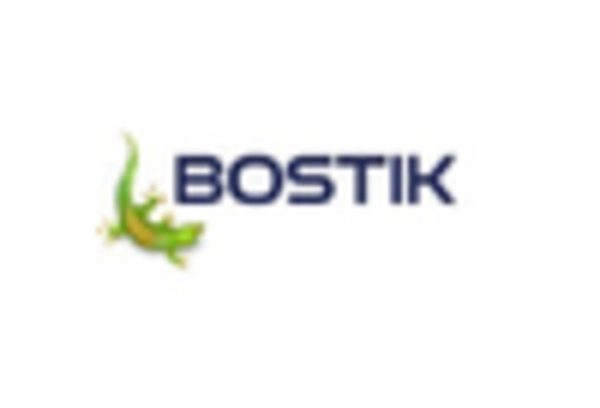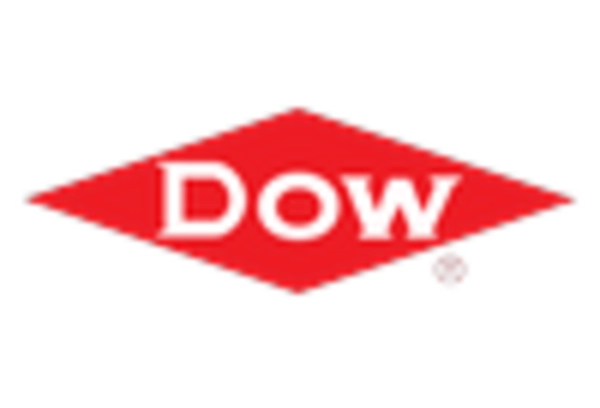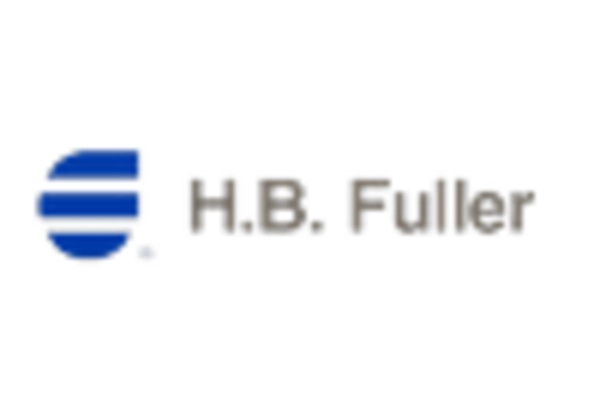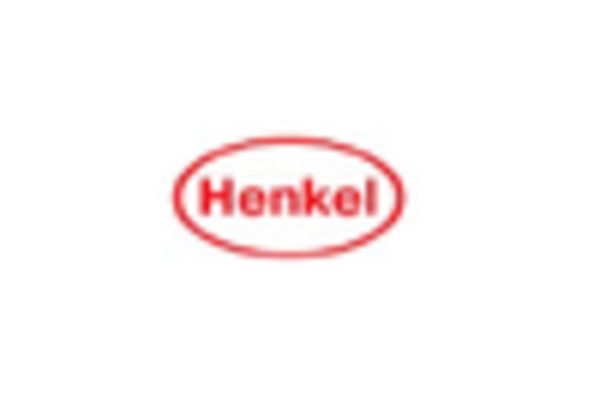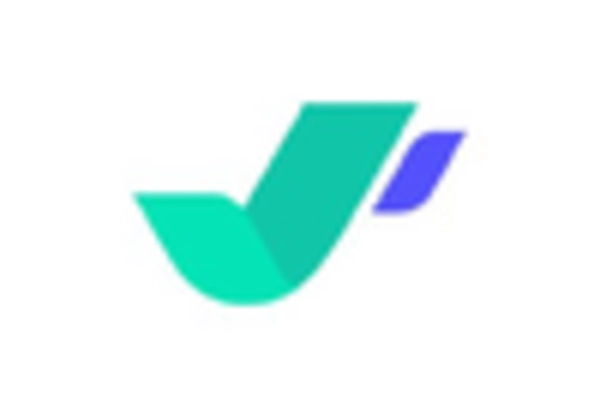The hybrid adhesive-sealant market is characterized by a dynamic competitive landscape, driven by innovation, sustainability, and the increasing demand for high-performance bonding solutions across various industries. Key players such as Henkel (DE), 3M (US), and Dow (US) are strategically positioned to leverage their extensive product portfolios and technological advancements. Henkel (DE) focuses on enhancing its product offerings through sustainable practices, while 3M (US) emphasizes innovation in adhesive technologies. Dow (US) is actively pursuing partnerships to expand its market reach, indicating a collective strategy among these companies to shape a competitive environment that prioritizes both performance and environmental responsibility.In terms of business tactics, companies are increasingly localizing manufacturing to reduce lead times and optimize supply chains. The market structure appears moderately fragmented, with several key players holding substantial market shares. This fragmentation allows for a diverse range of products and solutions, fostering competition that drives innovation and efficiency. The collective influence of these major players is significant, as they set industry standards and trends that smaller companies often follow.
In October Henkel (DE) announced the launch of a new line of eco-friendly adhesive-sealants designed to meet stringent environmental regulations. This strategic move not only aligns with The hybrid adhesive-sealant market. The introduction of these products is likely to enhance their competitive edge, appealing to environmentally conscious consumers and businesses alike.
In September 3M (US) unveiled a cutting-edge adhesive technology that significantly reduces curing time while maintaining high bond strength. This innovation is expected to revolutionize application processes in various sectors, including construction and automotive. By prioritizing research and development, 3M (US) demonstrates its commitment to staying ahead of market demands and enhancing operational efficiency.
In August Dow (US) entered a strategic partnership with a leading construction firm to develop customized adhesive solutions for large-scale projects. This collaboration not only expands Dow's market presence but also allows for tailored solutions that meet specific client needs. Such partnerships are indicative of a broader trend where companies seek to integrate their offerings into comprehensive solutions, thereby enhancing customer loyalty and satisfaction.
As of November current competitive trends in the hybrid adhesive-sealant market include a strong focus on digitalization, sustainability, and the integration of AI technologies. Strategic alliances are increasingly shaping the landscape, enabling companies to pool resources and expertise for enhanced innovation. Looking ahead, competitive differentiation is likely to evolve from traditional price-based competition to a focus on technological advancements, supply chain reliability, and sustainable practices. This shift underscores the importance of innovation as a key driver of market success.


